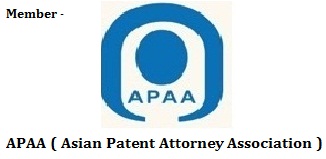Compulsory Licensing of Remdesivir – A Dilemma
While the whole world battles with the current pandemic, major pharmaceutical corporations around the world are battling to make that perfect drug. A patent bestows a right in the author to stop others from copying, manufacturing, selling or importing your invention without permission from the author. An exception to this IPR, the concept of Compulsory Licensing means that the government can allow other manufacturers to produce a patented product or a process without the consent of the actual owner. The Indian Patent Act, 1970 deals with the conditions for compulsory licensing which are mentioned under Sections 84 to 92 of the said act. While there are a number of drugs available, Remdesivir, an antiviral drug, which was originally developed over a decade ago to treat hepatitis C and Ebola, proved out to be a clear winner in the race towards the development of a successful drug for the treatment of Covid-19. According to the World Health Organization (WHO), the drug helps to prevent replication of the coronavirus. Recently, the CPI (Marxist) party has suggested that the government shall issue compulsory licenses for the manufacturing of a generic version of Remdesivir which is being used to treat Covid-19 patients. Before delving into the issue of compulsory licensing of Remdesivir, it is important to acknowledge the fact that Gilead has already signed non-exclusive voluntary licensing agreements with generic pharmaceutical manufacturers based in Egypt, India and Pakistan to further expand supply of remdesivir. These agreements allow the companies: Cipla Ltd.; Dr. Reddy’s Laboratories Ltd.; Eva Pharma; Ferozsons Laboratories; Hetero Labs Ltd.; Jubilant Lifesciences; Mylan; Syngene, a Biocon company; and Zydus Cadila Healthcare Ltd. to manufacture Remdesivir for distribution in 127 countries.
While keeping this fact in mind, one should not forget the importance of the drug and its availability to everyone. While these agreements allow a significant number of doses of the drug to be made available to the public, this might not be sufficient for countries with large population such as India. Maharashtra, Delhi, Gujarat, Chhattisgarh and Madhya Pradesh have reported a shortage of Remdesivir as Covid-19 cases surge and the manufacturers of this drug cannot be expected to make the ends meet in such a short amount of time. While the sole purpose of Compulsory Licensing is to reduce the prices of pharmaceutical drugs by minimizing the monopoly in the pharmaceutical industry, it also negates the primary benefit to the patent owner of licensing the patent to third- parties by earning royalties. The vaccine, if developed by any country would undergo compulsory licensing to curb the effect of the virus as soon as possible. Due to this, many pharmaceutical companies do not wish to contribute to the development of vaccine for the novel Coronavirus, Covid-19 as they would not be able to earn any royalty if they invest all their resources for the development of the vaccine. This seems to be a serious issue as this would hinder the struggle towards fighting this novel coronavirus. While on one hand, the Patent law acts as a source of encouragement for the inventors, but on the other hand, it also gives them monopoly rights which can be abused. Patents rights are granted to the inventor for a period of 20 years and after the expiry of this period, the invention enters of the into the public domain and can be used by anyone. Other than Patents, the importance following IPRs cannot be ignored: –
- Design Act, 2000: The Designs Act, 2000, currently governs the issues related to design registration and piracy in India. Design Registration covers the ornamental or aesthetic aspect of an article. Design Registration gives the inventor monopoly rights over a period of 10 years, which may be extended to 5 years more.
- Trade Marks Act, 1999: A trademark is a type of IPR consisting of a recognizable sign, design, or expression which identifies products or services of a particular source from those of others. Trade Mark Registration gives the owner exclusive right to use the mark for a period of 10 years, which can be further renewed.
- Copyright Act, 1957: Copyright is a right given by the law to creators of literary, dramatic, musical and artistic works and producers of cinematograph films and sound recordings. Copyright Registration gives the author exclusive right over the work for a period of 60 years, in addition to the lifetime of the author.
- Geographical Indications Act, 1999: A geographical indication (GI) is a sign used on products that have a specific geographical origin and possess qualities or a reputation that are due to that origin, for example, Bikaneri Bhujia, Darjeeling tea, etc.
- Other IPRs include: (a) Trade Secrets, which are rights on confidential information which may be sold or licensed; (b) The Semiconductor Integrated Circuits Layout-Design Act, 2000, which provides for the protection of semiconductor integrated circuits layout- designs.


